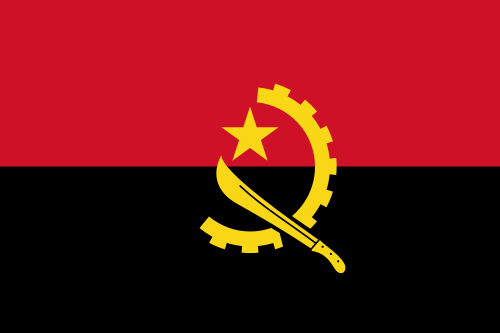Angola, located on the southwest coast of Africa, is a country rich in natural resources, known for its significant oil and diamond reserves. Its landscape is diverse, featuring a long Atlantic coastline, savannah, and extensive rainforests. The capital, Luanda, sits on the coast and is a bustling, rapidly growing city blending colonial Portuguese architecture with modern structures. Angola’s cultural heritage, influenced by indigenous traditions and Portuguese colonization, is expressed in its music, dance, and cuisine, making it a country with a complex history and evolving identity.
List of National and Public Holidays in Angola, Africa for the year 2024
- New Year’s Day: Monday, 1 January 2024
- Day of the Armed Struggle: Sunday, 4 February 2024
- Carnival Holiday: Monday, 12 February 2024
- Carnival: Tuesday, 13 February 2024
- International Women’s Day: Friday, 8 March 2024
- Southern Africa Liberation Day: Saturday, 23 March 2024
- Good Friday: Friday, 29 March 2024
- Angolan Peace Day: Thursday, 4 April 2024
- Angolan Peace Day Holiday: Friday, 5 April 2024
- Labour Day: Wednesday, 1 May 2024
- National Heroes Day Holiday: Monday, 16 September 2024
- National Heroes Day: Tuesday, 17 September 2024
- All Souls’ Day: Saturday, 2 November 2024
- Independence Day: Monday, 11 November 2024
- Christmas Day: Wednesday, 25 December 2024

Angola, a country in Southern Africa known for its rich cultural heritage and natural resources, especially oil and diamonds, has a complex history and a rapidly developing economy. Here’s a comprehensive summary:
History
- Early History: Inhabited by Khoisan-speaking hunter-gatherer groups, later joined by Bantu migrations.
- Colonial Era: Colonized by Portugal in the 16th century, becoming a major slave trade hub.
- Independence in 1975: After a long struggle, gained independence from Portugal.
- Civil War: Plunged into a devastating civil war post-independence, lasting until 2002.
Geography
- Location: On the southwest coast of Africa, bordered by Namibia, Zambia, and the Democratic Republic of Congo.
- Land Area: Approximately 1.25 million square kilometers.
- Terrain: Diverse, with coastal plains, central highlands, and eastern savannas.
- Climate: Predominantly tropical climate, with a dry and a rainy season.
Economy
- Oil and Diamonds: Among the world’s top producers of oil and diamonds.
- Diversification Efforts: Moving towards diversifying its economy, focusing on agriculture and tourism.
- Challenges: Despite wealth in resources, faces issues of poverty and inequality.
Neighboring Countries
- Namibia: South
- Zambia: East
- Democratic Republic of the Congo: North
- Republic of the Congo: Northeast (across the river)
Culture
- Languages: Portuguese (official), alongside various Bantu languages.
- Music and Dance: Known for Kizomba and Semba music and dance.
- Cuisine: Features dishes like Muamba de Galinha and Funge.
Natural Beauty and Tourism
- Landscapes: Offers beautiful beaches, national parks, and the Kalandula Falls.
- Wildlife: Rich biodiversity, including elephants, giraffes, and a variety of bird species.
- Cultural Sites: Fortresses and colonial architecture reflect its history.
Challenges
- Political Situation: Transitioning from a history of conflict to stability.
- Social Issues: Working towards improving healthcare, education, and basic services.
Conclusion
Angola’s journey from a colonial past and civil war to becoming an oil-rich nation highlights its resilience. Its diverse culture and natural beauty make it an intriguing destination.

